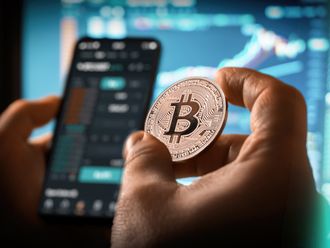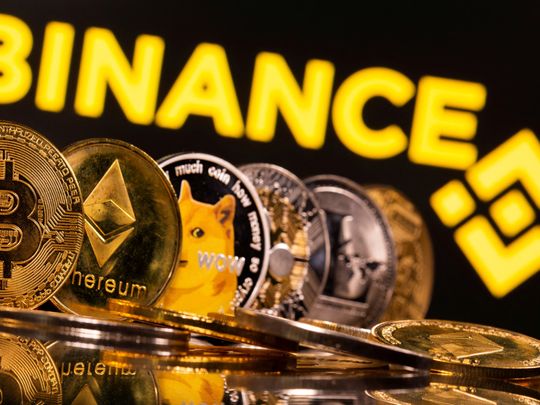
Dubai: In the past few days, back-to-back US regulatory lawsuits against two of the world’s biggest crypto exchanges, Binance and Coinbase, have resulted in investors worldwide rushing to pull out their crypto investments. Here’s what you need to know about this latest turmoil to hit the industry.
In a dramatic escalation of a crackdown on the industry, the US operations of global crypto exchange Binance was hit with more than $1.3 billion (Dh4.77 billion) in customer withdrawals after the US Securities and Exchange Commission (SEC) filed a lawsuit against them on Monday.
The top US securities regulator also sued US-based platform Coinbase a day later, the second lawsuit in two days against a major crypto exchange. Coinbase suffered a similar-sized net loss of $1.3 billion in customer deposits after the lawsuit, as per initial estimates from US data analytics firm Nansen.
“The moves by the SEC mark a serious escalation of the closely-followed regulator’s campaign to rein in an industry that has for years operated outside regulation,” opined Brian Deshell, a long-time UAE-based cryptocurrency trader and market analyst.
“And if the SEC prevails in either case, be it in its latest lawsuits against either Binance or Coinbase, this could dramatically transform the cryptocurrency market in the coming months.”
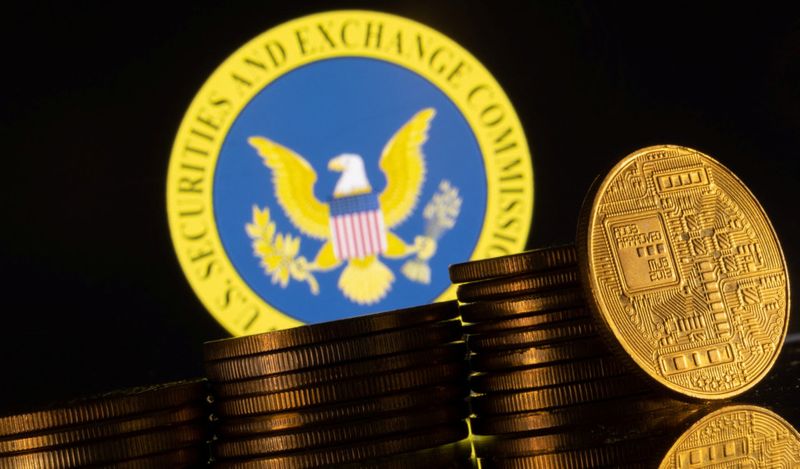
What allegations against Binance, Coinbase triggered investor withdrawals?
The US charged the biggest crypto trading platform in the country, Coinbase, with operating illegally, while suing them for acting as a broker or exchange for investments that are subject to SEC rules, without proper licenses. Coinbase said the rules were not clear surrounding crypto investments.
The complaint against Coinbase came a day after Binance, the world's largest crypto trading platform, was sued for mishandling customer funds, falsely inflating trading volumes and taking steps to evade regulation.
These allegations triggered a rush in investors cashing out their crypto investments, according to data from researcher Nansen, which flagged that Binance users are withdrawing more than what they're depositing into the exchange “at a very high level”.
“It's not the first time that Binance has seen large withdrawals, and it's most likely not the last time either. For example, last December, Binance saw over $2 billion (Dh7.35 billion) in withdrawals when there were market concerns about insolvency,” the firm tweeted on Monday.
“While the total withdrawals are high, Binance still holds over $54 billion (Dh200 billion) across their known wallets, with withdrawals representing less than 10 per cent of total funds across known wallets.”
In April, the SEC charged US-based crypto exchange Bittrex Inc with operating an unregistered securities exchange, broker and clearing agency, and settled with peer US exchange Kraken in February.
Efforts to increase scrutiny have picked up after last year's dramatic collapse of another major exchange, FTX, which left many customers unable to access their funds. The SEC first charged founder Samuel Bankman-Fried in December with orchestrating a scheme to defraud FTX investors.
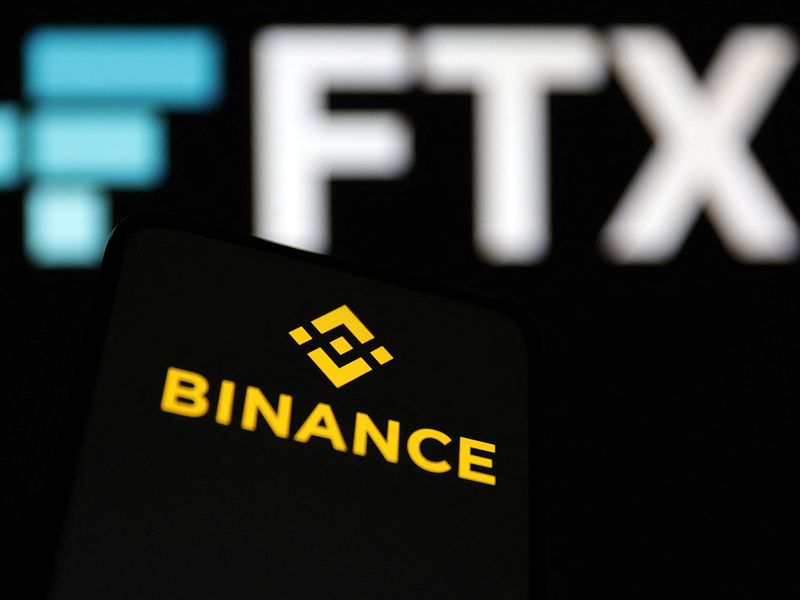
What will be the larger repercussions of this crypto crackdown? Experts speak
“It looks like the SEC is playing Whac-A-Mole with crypto exchanges, and as most exchanges offer a range of tokens that operate on blockchain protocols targeted by regulators, it seems like this is just the beginning," noted Ed Moya, senior market analyst at US-based investment brokerage Oanda.
Mark Basa, managing director at global PR agency XWECAN’s Web3 – the division that builds brands for crypto companies worldwide, believes that the SEC “will eventually go after the entire crypto industry”.
In what Basa refers to as currently being in a system wherein crypto exchanges “borrow other people's money when there is no collateral to back up the loans themselves”, the SEC is “scrambling to look for every pump and dump and understand what is going on in the space”.
“The wider repercussions of the SEC crackdown are not necessarily negative. It has prompted crypto companies worldwide to increase compliance and expand overseas, moves that market watchers like me agree would likely be accelerated worldwide,” added Deshell.
Edan Yago, founder of UK-based Bitcoin trading platform Sovryn, believes that the crypto industry will survive despite the SEC’s decision to sue and that the adoption of technology will only increase.
“In the short term, targeting these leading providers is likely to have a chilling effect. However, this will likely last far shorter and be less impactful than most expect. Crypto is an industry that is used to adversity,” Yago added.
“Regulation is needed to protect consumers' financial assets as well as make the market a safer place overall. Not only does this instil confidence in those trading in the market, but it also increases the attractiveness of the industry, facilitating wider adoption of crypto services,” added Deshell.
“Because of a poorly regulated industry, billions of dollars in value of crypto assets have been lost by customers locked out of their accounts or unable to withdraw funds. The mistakes of the past have undoubtedly damaged the public opinion of the crypto industry. To restore trust, it is necessary to introduce regulation that protects people’s assets.”
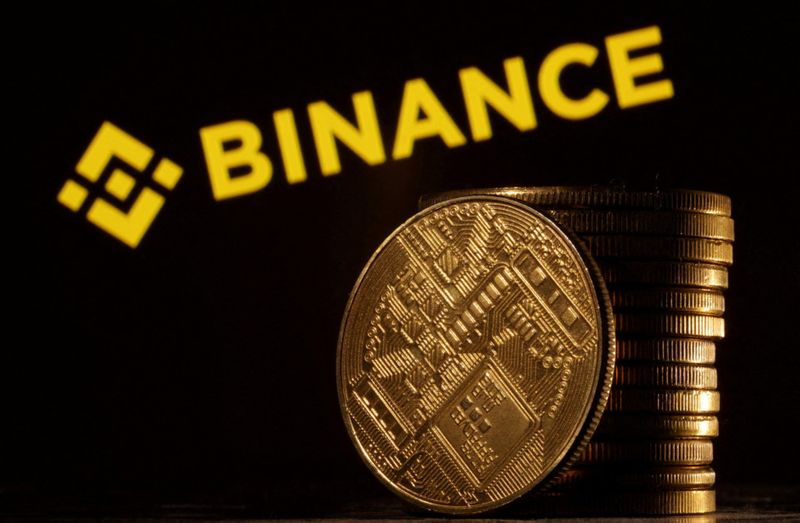
Bottom line: More crypto regulation to safeguard investor funds better?
So will more crypto regulation make crypto exchanges more transparent and safeguard investor funds better? “It certainly will; regulators all over the world learn from historical debacles,” agreed Deshell.
“The regulatory actions in the US highlight the need to establish safeguards in these markets to meet the expectations of investors and customers. Consequently, these charges have the potential to reshape the regulatory landscape for digital assets, and as a result protect investor investments.”
Deshell further noted that investors often mistakenly believe that greater regulatory scrutiny is harmful for crypto prices. On the contrary, he pointed out that that growing regulation is a positive sign for crypto.
“As the industry grows, we are seeing more and more regulators jumping on the ship to regulate it. Growing regulatory oversight is a mark of a maturing industry. Regulation will further shore up the crypto sector and instil trust and confidence among investors.”

